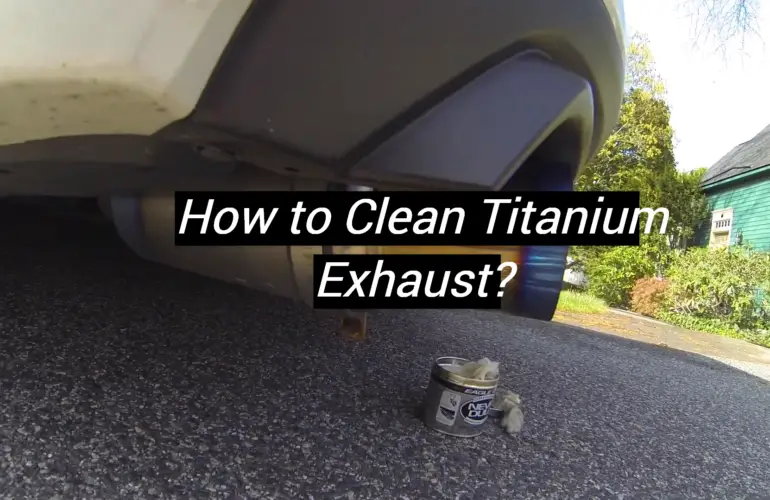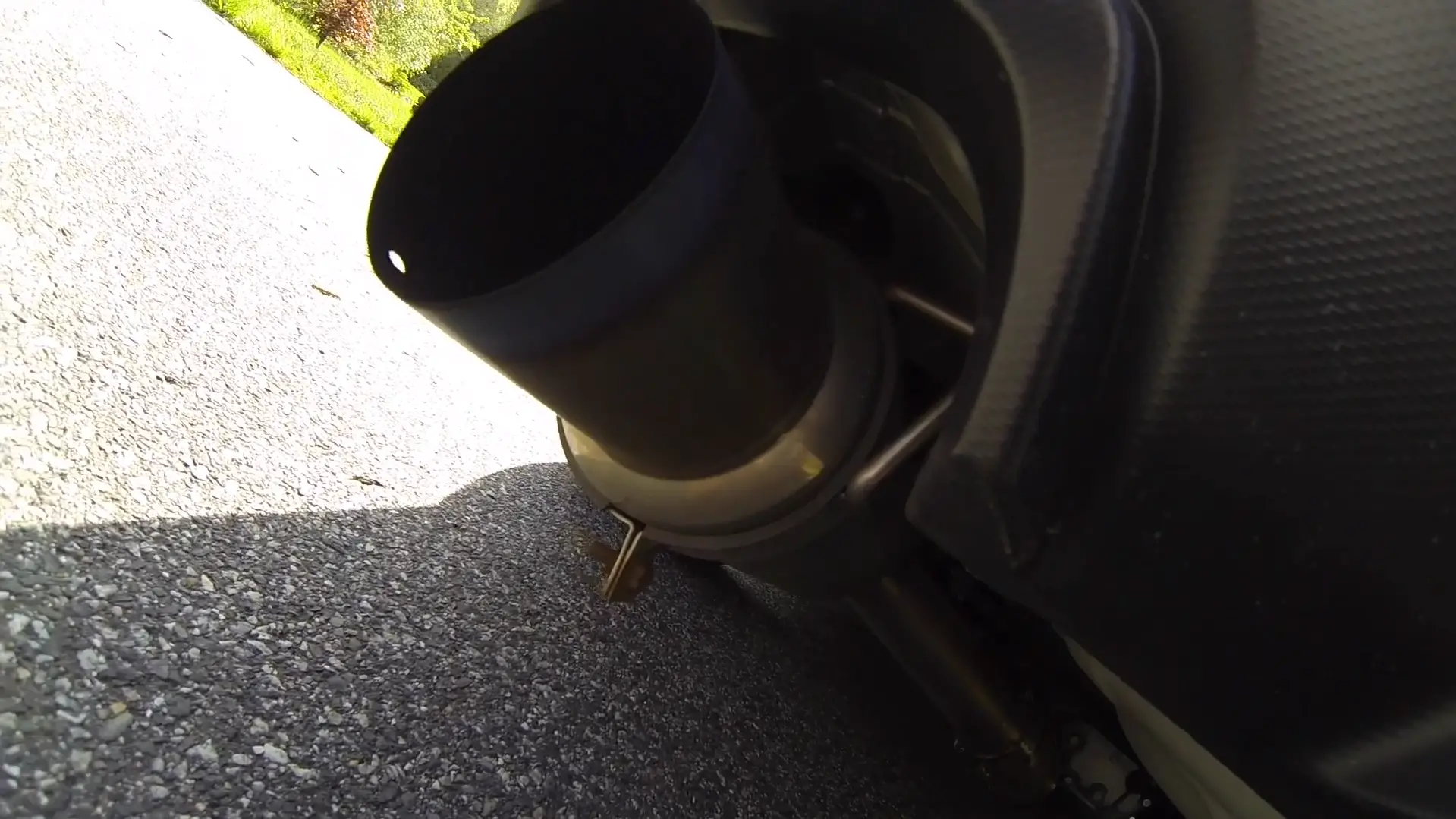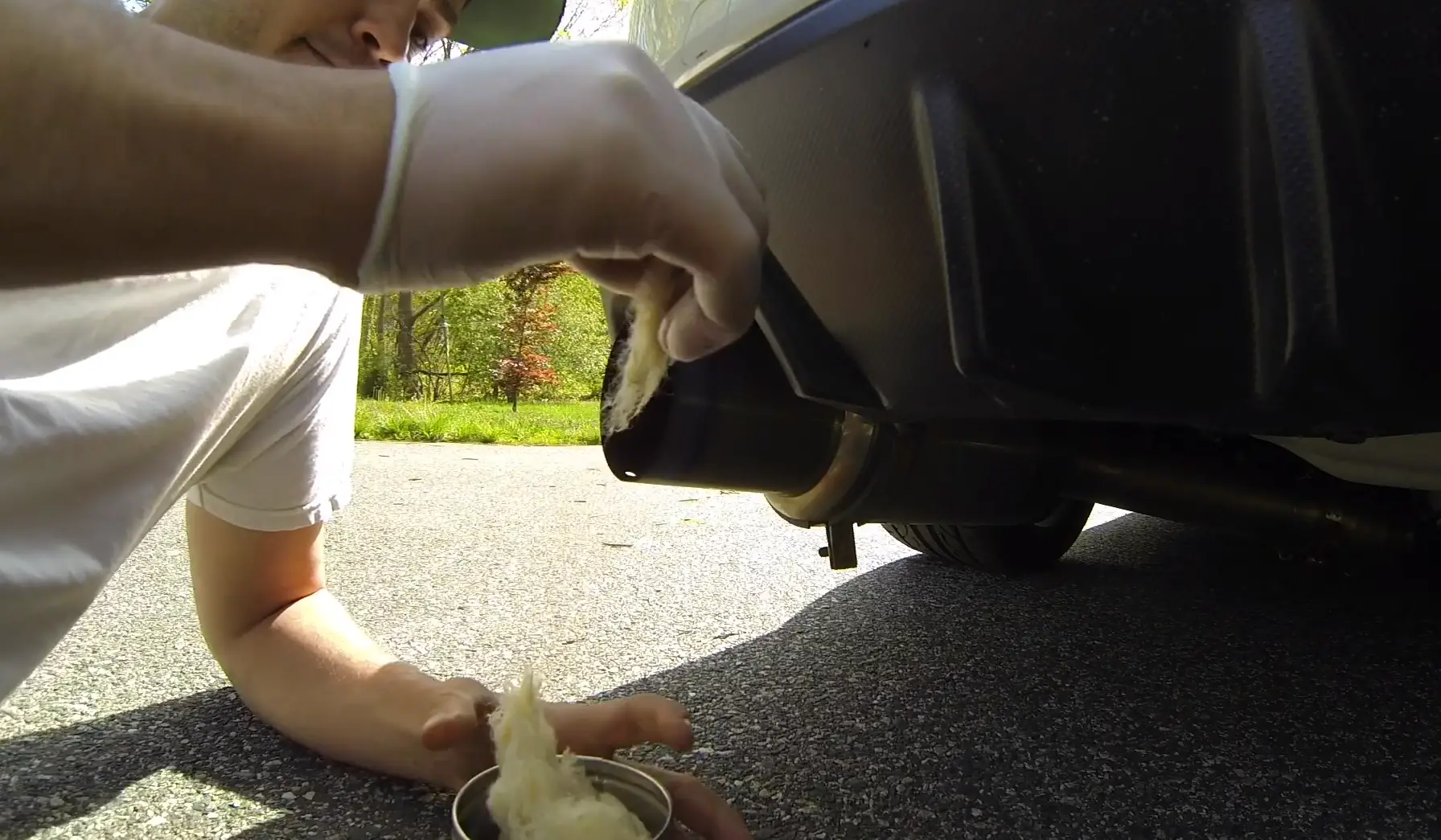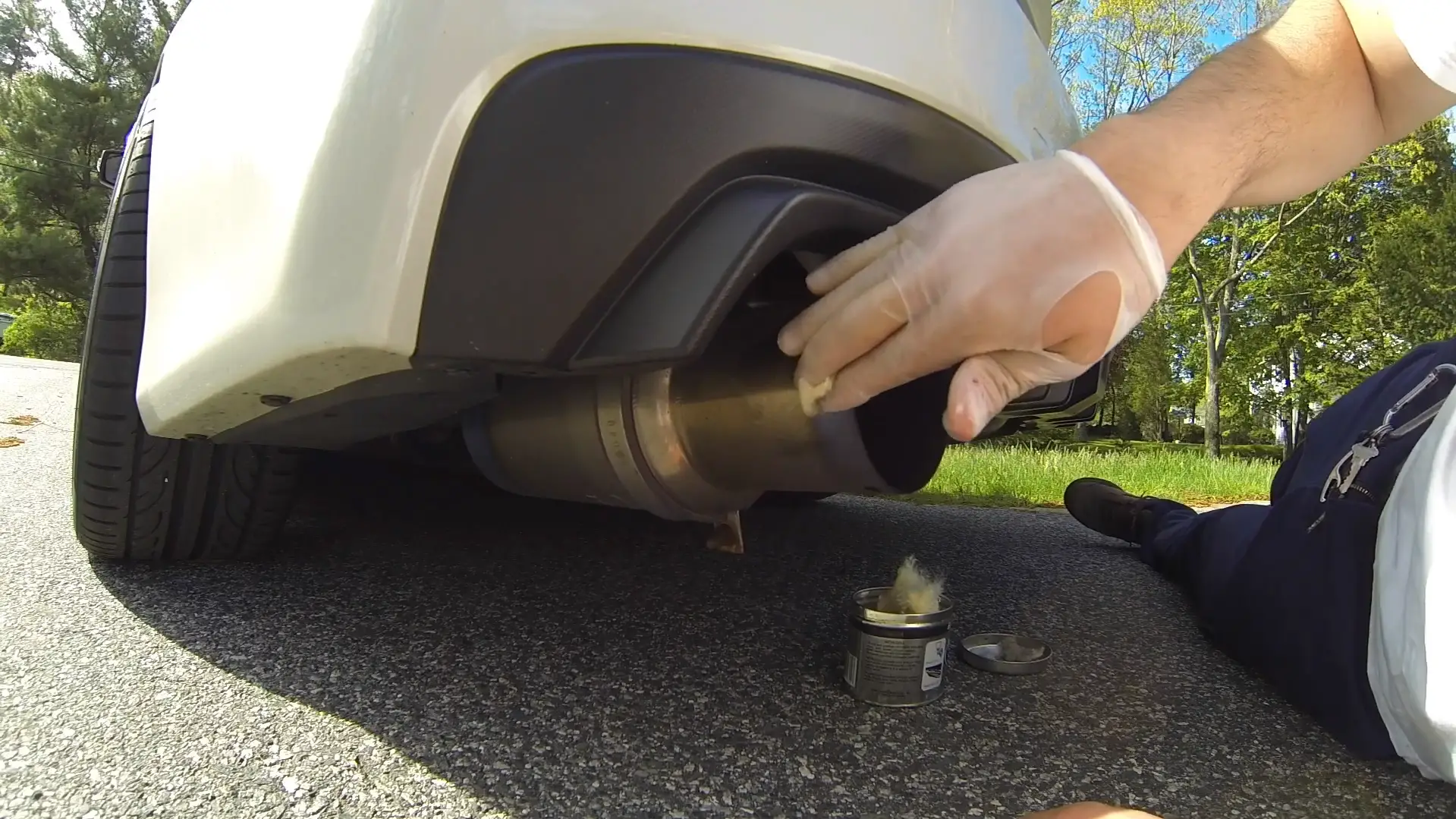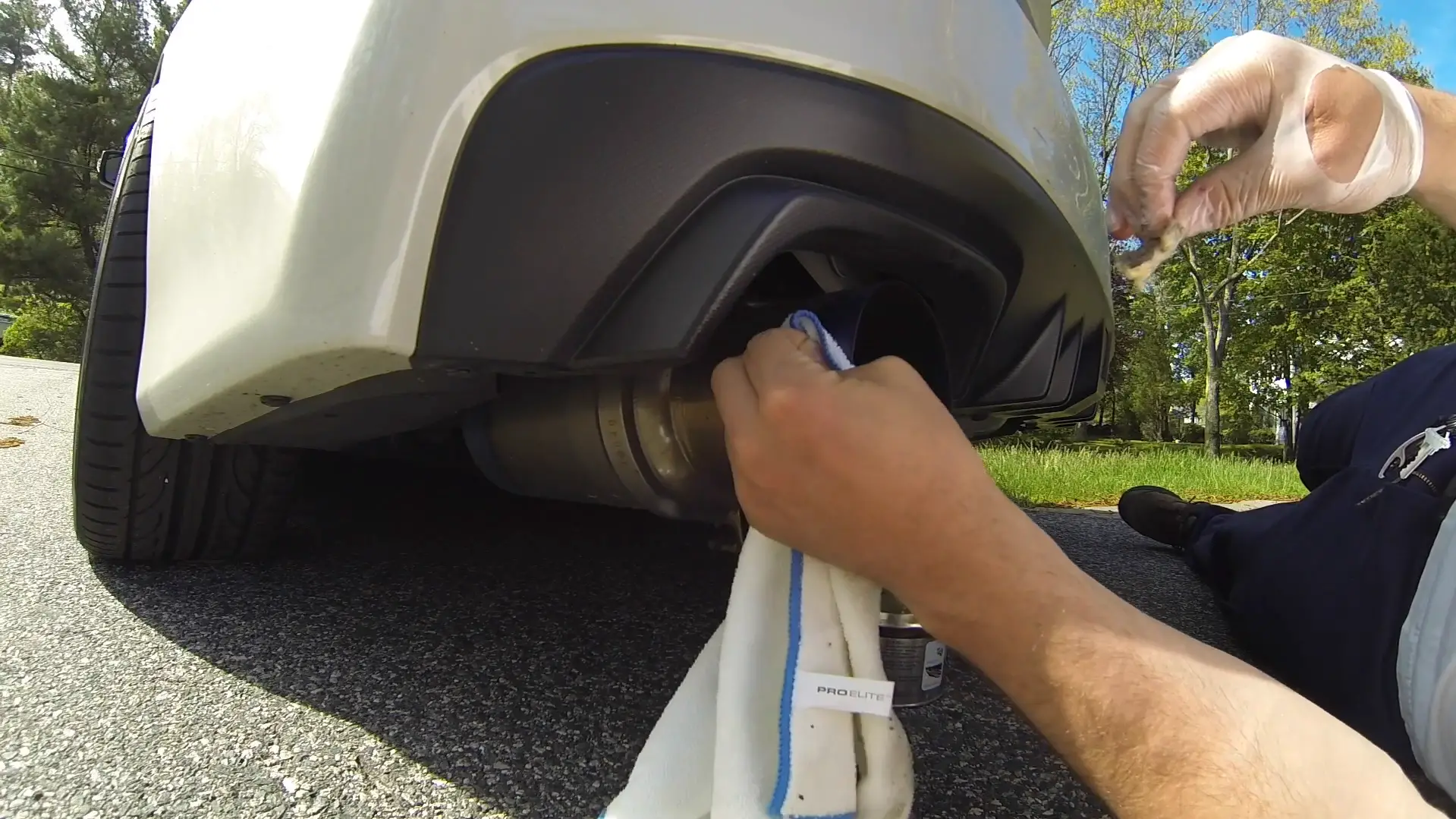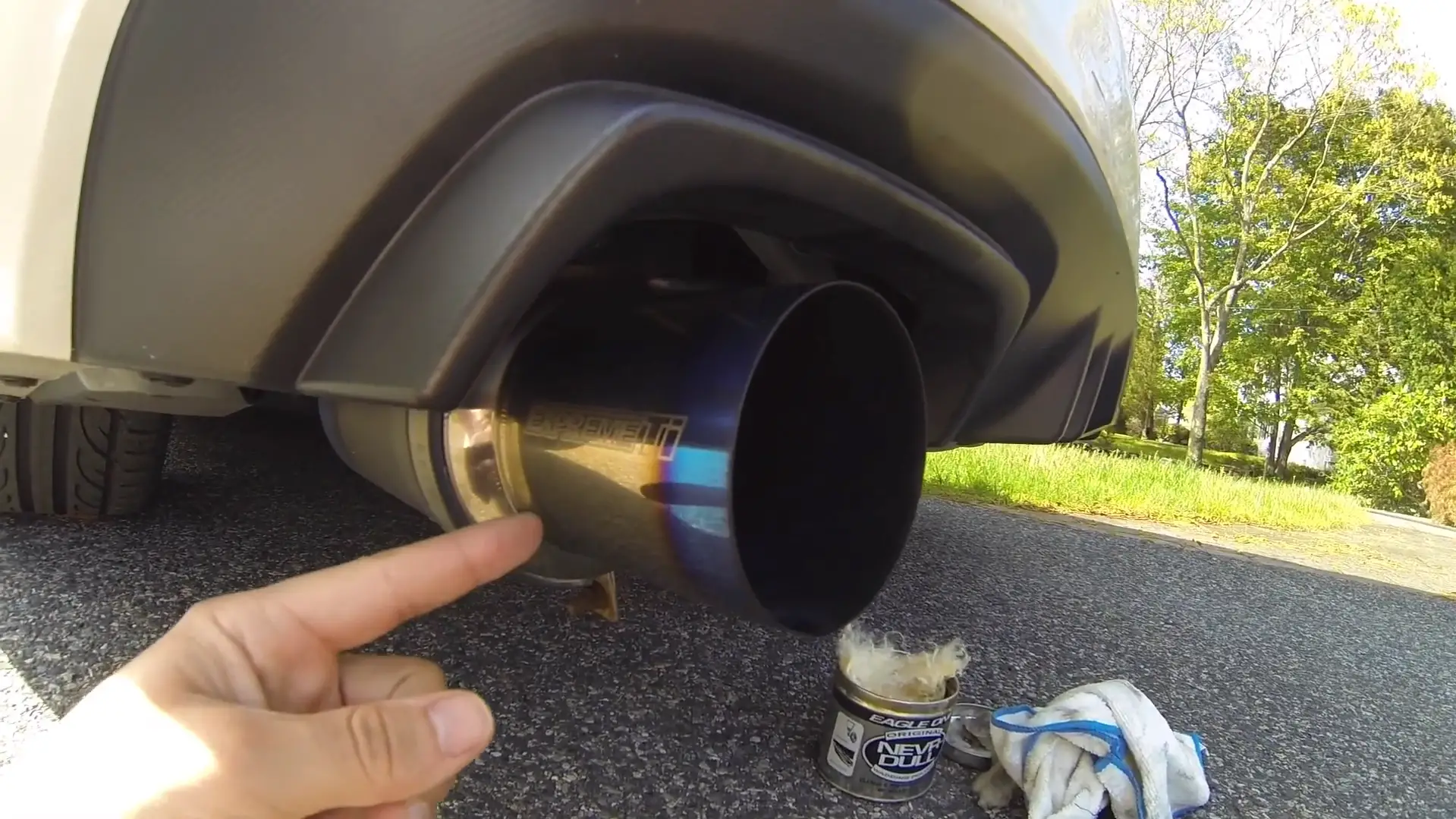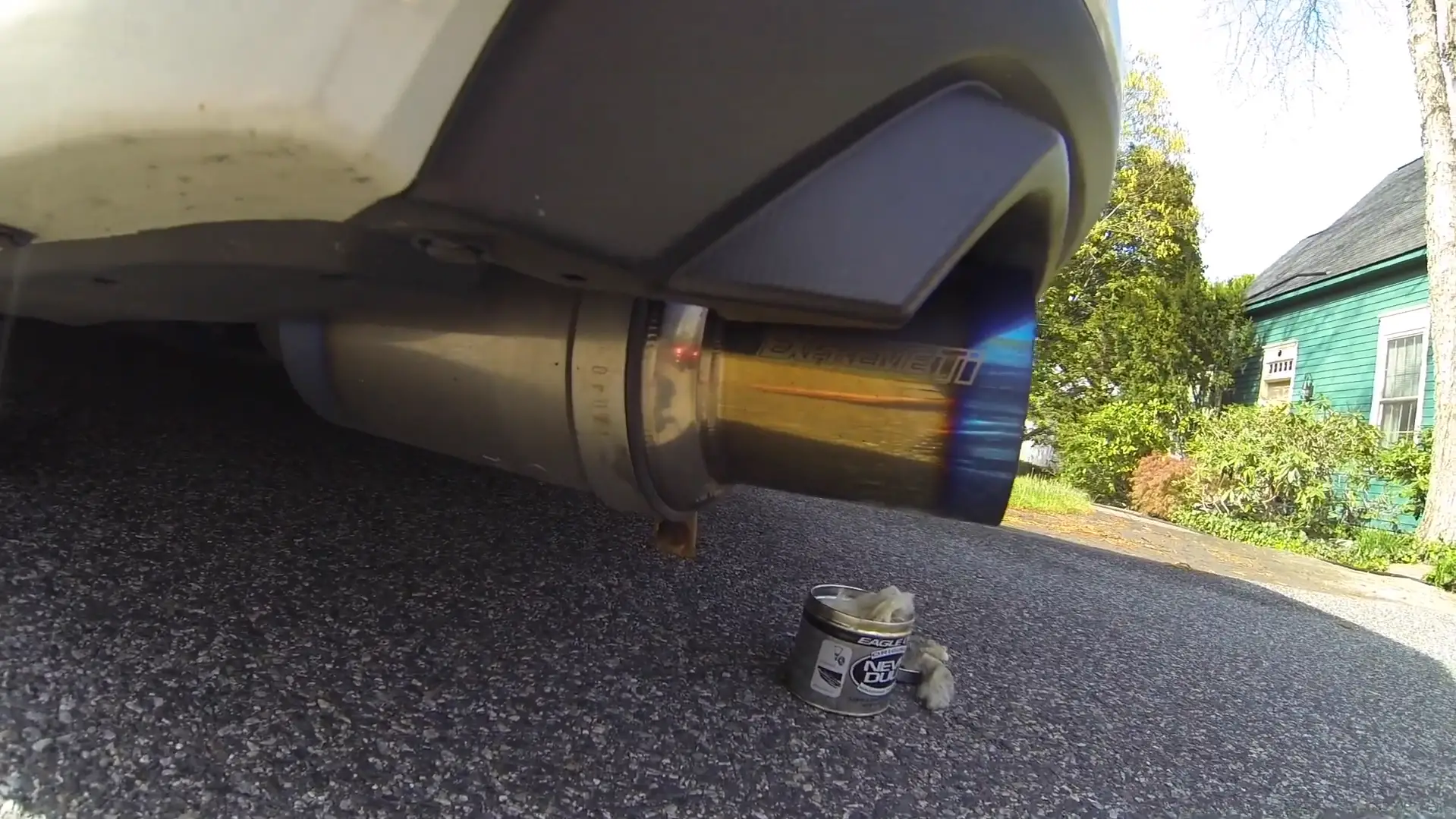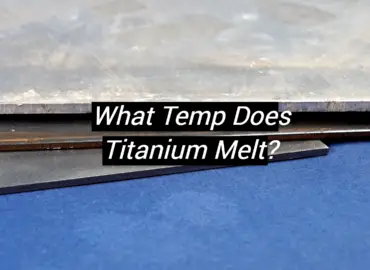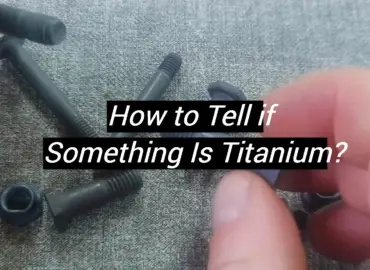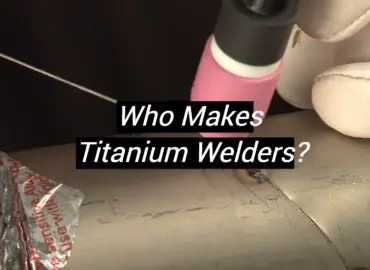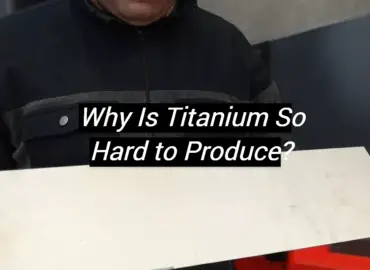When it comes to maintaining the overall performance of your bike or car, cleaning the titanium exhaust should always be a priority. An exhaust system that is clean and free of debris not only enhances the sound quality of your bike, but also ensures the longevity of your bike’s most essential component. In this post, we will share with you some easy and effective tips on how to clean your titanium exhaust, and ensure that it sparkles like new.
Features of Titanium
Titanium is one of the most versatile and popular metals which is really widespread in a number of spheres today. It’s used in the production of a wide range of objects, from jewelry to airplanes. But did you know that titanium is also widely used in the creation of many electronic devices? Here we will discuss some characteristics of titanium that make it an ideal material for electronic devices and other applications.
- Lightweight but incredibly durable: Titanium is known for its very interesting quality: it’s lighter than steel, but much stronger, making it an ideal metal for applications that require both lightweight and robust structural components. For this reason, titanium is widely applied in the sphere of aerospace, for aircraft parts, and spacecraft.
- Corrosion-resistant: Titanium resists corrosion easily because of its stable oxide layer. This makes it a popular choice for many outdoor applications, such as in boats, bridges, and even in medical implants.
- Biocompatible: In addition to being corrosion-resistant, titanium is also biocompatible, meaning it doesn’t react with the body’s natural chemistry. This makes it an ideal material for medical implants, including artificial hip and knee joints. Titanium is also used in dental implants and in many surgical instruments because of its biocompatibility.
- Extremely versatile: Titanium is an incredibly versatile metal, thanks to its ability to be combined with other metals and alloys to create a wide range of materials. One popular use of titanium is in alloys like titanium-nickel (also known as Nitinol), which is used in medical devices and eyeglasses. The unique properties of Nitinol allow it to remember its original shape, even after being bent or deformed.
- Aesthetically pleasing: In addition to being incredibly useful, titanium is also known for its aesthetic charm. It has a distinctive shine that is popularly used in the jewelry industry, where it’s fashioned into everything from rings to necklaces. Titanium is also used in the design of many electronic gadgets like laptops, smartphones, and watches because of its sleek and modern look.
Titanium Exhaust: All You Need to Know
Every car enthusiast knows that the exhaust system is a crucial component of any vehicle. It’s not just a pipe that expels gasses; it’s responsible for the engine’s performance, sound, and efficiency. The exhaust system must be designed and manufactured to withstand the high temperatures and corrosive nature of exhaust gasses. One of the most popular materials used for exhaust production is titanium. It is known for its unique properties, making it a great choice for high-performance engines. Here we will provide you with all that you need to know about titanium exhausts.
To begin with, it is important to note that it is an exhaust system that primarily uses titanium in its construction. Most titanium exhaust systems have a combination of titanium and other materials like stainless steel or Inconel. This design provides a balance of durability, weight reduction, and cost-effectiveness. Such a system is more than just a fad; it is a significant upgrade for any car enthusiast.
A titanium exhaust requires little to no maintenance compared to steel exhaust systems. Steel exhausts may rust easily and that’s why they require regular cleaning and maintenance to prevent deterioration. On the other hand, titanium exhausts are highly resistant to rust and only require occasional cleaning with water and mild soap. It’s critical to note that using harsh chemicals or abrasives on titanium exhausts can cause damage, so it’s best to avoid them.
Installing this system isn’t a complicated process, but it’s important to seek professional installation. Professional installers know precisely how to attach the exhaust parts, ensuring no air leaks exist. They will also provide guidance on the proper maintenance of the titanium exhaust.
In conclusion, a titanium exhaust is an excellent investment for any car enthusiast. Its lightweight, durability, and corrosion-resistance make it a great option for high-performance engines. Although it may come with a higher price tag than steel exhausts, the significant weight reduction, unique sound and performance gains are well worth the investment. If you are considering upgrading your vehicle’s exhaust system, a titanium one could be the one for you.
Benefits and Drawbacks of Titanium Exhausts
Car enthusiasts are always looking for ways to boost their ride’s performance, and one popular modification is switching to a titanium exhaust system. But what are the advantages and disadvantages of upgrading from a stock exhaust? Let’s explore the benefits and drawbacks of titanium exhausts and check whether it’s worth the investment.
The Benefits:
- Improved Performance – Exhausts made of titanium are lighter than standard steel exhausts, which means they reduce the overall weight of your vehicle. This weight reduction can help improve acceleration and maneuverability, which is essential when it comes to sports cars. Additionally, due to the lighter weight, the engine doesn’t have to work as hard to pump exhaust gasses, which will increase horsepower, torque, and fuel efficiency.
- Durability – Titanium exhausts have a longer lifespan compared to steel exhausts since they’re resistant to corrosion and rust. They’re also better at withstanding high temperatures, which will reduce the likelihood of failure due to overheating.
- Better Quality of the Sound – A titanium exhaust can improve the sound quality of the engine. The unique sound that comes from a titanium exhaust is often deeper, richer and more aggressive than the standard exhaust sound. This is thanks to the smoother and more efficient flow of exhaust gasses. Also, most of these exhaust systems come with adjustable mufflers, allowing you to customize the sound output of your vehicle.
The Drawbacks:
- Expensive – The discussed systems are considerably more expensive than steel ones. If price is a significant factor, a titanium exhaust upgrade might not be the best option for you. Additionally, many titanium exhaust systems require custom fabrication, which can also add to the cost of installation.
- Fragility – Although they are durable, the systems are more brittle than steel. If you live in an area with extreme temperature fluctuations or poor road conditions, a titanium system might not be ideal as this brittle nature could lead to cracks, dents or amplification of road noise.
- Proper Maintenance – Since titanium exhausts are expensive, they need regular maintenance to keep them functional. The material is more fragile than steel, so you’ll need to regularly inspect the system for any damage or corrosion. Additionally, titanium pieces tend to expand and contract more than steel ones, so you’ll need to make sure all the nuts and bolts are tightened, which can be seen as an added maintenance burden.
- Over Decibel Limits – In some areas, certain titanium exhaust systems may not be street-legal due to excessive volume levels. It’s always important to check local laws before purchasing and installing an upgraded exhaust system.
Deciding whether to try a titanium exhaust system comes down to your preference on price and overall car sound and performance. While a titanium exhaust can bring benefits of a lighter weight and improved performance, it may not be ideal if you live in areas with poor road conditions, experience wide temperature fluctuations, or you have a tight budget.
Maintaining the system properly is critical to ensure you gain the benefits mentioned above, while not being over the decibel limits can prevent any ticket expenses. In summary, it’s essential to consider all factors before deciding whether a titanium exhaust system is right for your vehicle.
Safety Precautions and Tools for Cleaning
Many car enthusiasts who want to give their ride that extra boost of speed make the switch to titanium exhausts. Not only do these exhausts enhance a car’s performance, but they can also add to the aesthetic appeal of a vehicle. However, it’s important to maintain titanium exhausts to make them function properly. This task might seem daunting at first, but with the right tools and a few safety precautions, keeping your titanium exhaust clean is easy.
Before even touching your titanium exhaust, it’s highly important to follow a few basic safety precautions. Firstly, make sure your vehicle is turned off and has been allowed to cool down for at least an hour. It’s important to never attempt to clean your titanium exhaust while your car is still hot. Secondly, it’s important to wear proper eye, ear, and hand protection while cleaning your exhaust. A quality pair of safety glasses should be used to protect your eyes, while earplugs should be used to protect your hearing from loud noises. Lastly, protective gloves should be worn when handling cleaning agents and tools to avoid contact with acids and chemicals.
To keep the titanium exhaust in good condition, you’ll want to invest in a few specific tools. For starters, a metal polish such as Autosol or Simichrome will work well to remove tarnish and corrosion. A microfiber towel or soft-bristled brush will be helpful when scrubbing off any residue. You may also want to get a metal polisher or rotary tool to buff out any scratches or blemishes that have been left behind. Be sure to use non-abrasive or non-silicone polishing compounds as they can damage the surface of the titanium exhaust.
Beyond regular cleaning, it’s important to take preventative measures to keep your titanium exhaust in top shape. One way to do this is to use a heat wrap or insulating tape to protect your exhaust from excessive heat exposure. Additionally, remember that you must avoid any harsh cleaning agents that could damage the surface of the titanium. Finally, consider purchasing a titanium sealant or protectant, which can help prevent corrosion and staining over time.
So, maintaining your titanium exhaust doesn’t have to be daunting or time-consuming. By following proper safety precautions, investing in the right tools, and regularly cleaning and maintaining your exhaust, you can ensure that it continues to function properly and adds to the overall appeal of your vehicle for years to come. So, go ahead and give your ride that extra boost of speed – just remember to take care of your titanium exhaust!
Steps of Cleaning Titanium Exhaust
You love your vehicle, and you take pride in keeping it in outstanding condition. Yet, how much attention do you give to your titanium exhaust? Sure, it looks stunning, but have you considered how important it is to keep it clean? A dirty exhaust not only diminishes your vehicle’s good looks, but it can also lead to corrosion, which can ultimately damage your engine. So, here are some simple steps that you can take to clean your titanium exhaust effectively.
Step 1: Get the Materials You Need
Before you can begin cleaning your titanium exhaust, you need to gather the materials you will need. These include mild detergent, hot water, microfiber cloths, and metal polish. Make sure that the mild detergent isn’t so harsh that it will cause damage to the metal. [1]
Step 2: Preparation
When you clean a titanium exhaust, it’s a good idea to heat it up a bit. Run your vehicle for several minutes to warm up the exhaust. If you clean the exhaust while it’s warm, it will make the process easier as grime, oil, and dust tend to come off more readily when the metal is warm.
Step 3: Clean It Up
Start by soaking your microfiber cloth in the mild detergent solution. Then, clean your titanium exhaust, ensuring that you get every corner of the pipe. For small nooks and crannies, you can take a soft-bristled brush. Rinse the detergent off using warm water, and dry the pipe with a clean microfiber cloth. [1]
Step 4: Polish the Pipe
Once you have ensured that the exhaust has been thoroughly cleaned and dried, it’s time to polish the pipe. To ensure that you get the best results, apply the polish in sections, using moderate pressure. Do not use harsh chemicals, as this could cause discoloration on the titanium exhaust.
Step 5: Dry
After polishing the titanium exhaust, it is crucial to clean off the polish using hot water and a microfiber cloth. Check to ensure that no polish is left on the surface of the exhaust. Then, take the microfiber cloth to dry the pipe.
Keeping your titanium exhaust in top condition can be a simple and straightforward process. Follow the steps outlined above, and you’ll have a gleaming, well-maintained bike that looks and performs to the highest standards. Remember, a clean vehicle is a happy vehicle, and any driver will tell you it’s all about small but regular maintenance tasks to keep your prized possession looking extra sharp. With these easy steps, keeping your titanium exhaust in top form has never been simpler.
How to Take Care of Titanium Exhaust
Titanium exhaust systems promise a lot, from improved performance to a better sound. But, once you invest in one, you must take care of it to keep your exhaust in top condition over the years. Here we have prepared some tips on how to take care of titanium exhaust.
To maintain the endurance of your titanium exhaust system, it’s important to clean it regularly. The heat produced by the exhaust can oxidize and discolor the surface of the metal, and that can lead to permanent damage. Use warm water and a mild soap to clean the surface of your exhaust. Avoid using abrasive cloths or scourers that can scratch the surface. [2]
Titanium exhaust can overheat and damage if subjected to high temperatures for too long. Avoid over-revving your car’s engine, which can cause it to overheat. Instead, let the engine idle for a while before switching it off. It helps the exhaust to cool down, preventing overheating and ensuring a longer lifespan. [2]
While driving, avoid revving the engine too long or too hard. It can cause unnecessary stress on the exhaust system and damage it. Drive strategically instead, making sure to change gears on time. It’s not only good for the longevity of your exhaust system, but also for your car’s engine.
Titanium exhaust systems require a layer of protection to prevent them from getting corroded quickly. While you’re polishing your car, you should also focus on the exhaust system. You can use a specialized coating or wax to provide your titanium exhaust with an extra layer of protection.
A titanium exhaust system is an excellent investment for car enthusiasts who look for high performance and speed. By following the simple tips outlined above, you can ensure excellent performance and longevity from your exhaust system.
FAQ
How do I make my titanium exhaust shiny again?
You’ll need to clean it on a regular basis. Start by using a high-quality metal cleaner and a soft microfiber cloth. Apply the cleaner to the cloth rather than spraying it directly onto the exhaust to avoid damaging the protective coating. Gently polish the exhaust in a circular motion, taking care not to apply too much pressure. If you prefer a glossy finish, apply a specialized metal polish for added shine.
How do you clean a titanium header?
Cleaning a titanium header follows the same steps as cleaning a titanium exhaust. The only difference is that headers are often exposed to more heat and gasses, so they require extra attention during cleaning.
Do all titanium exhaust turn blue?
Not necessarily. The blue color is a natural phenomenon that only occurs when a titanium exhaust system is exposed to high temperatures over an extended period of time. The color is actually an oxide layer that forms on the surface of the exhaust, and it can range from blue to purple to gold depending on the temperature and exposure time.
At what temperature does titanium turn blue?
Typically, the temperature range for this phenomenon is between 400°C to 800°C (752°F to 1472°F). However, a quick burst of high heat may also cause discoloration. The blue hue is an indication that the titanium reactive layer has formed an oxide coating in the presence of oxygen at a high temperature. This reaction enhances the corrosion resistance of the exhaust system.
Does titanium lose color?
The blue, gold or purple color of a titanium exhaust system is a feature that many car enthusiasts admire, but over time, it may fade or dull under normal wear and tear. However, as long as the oxide layer remains intact, the titanium exhaust retains its original corrosion-resistant properties. You can restore the color by polishing the surface and applying heat to the exhaust system. Different polishing techniques can also bring back the original luster.
Useful Video: HOW TO CLEAN TITANIUM/STAINLESS STEEL EXHAUST (MAKE THAT PUPPY SHINE)
Conclusions
Owning a vehicle is an investment that requires proper maintenance. By following the tips we have provided, you can easily clean and maintain your titanium exhaust. Remember, a clean and properly functioning exhaust system is not only better for your vehicle’s overall performance, but it also enhances the aesthetic of your ride. So, ride in style!
References:
- https://titek.co.uk/how-to-clean-a-titanium-exhaust/#:~:text=We%20recommend%20using%20a%20solvent,remove%20any%20carbon%20build%20up.
- https://www.motorcyclenews.com/new-rider/choosing-kit/2010/march/mar2910-how-to-clean-titanium-exhaust-pipes-/

